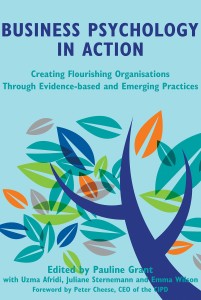Dark side personality characteristics describe flawed interpersonal strategies which, at their extreme, result in counterproductive behaviours. Such dysfunctional tendencies emerge during new or stressful situations, or when successful leaders have no restraining influences, so that they relax impulses they previously kept tightly in check.
These extreme characteristics can also be strengths up to a certain point. For example, someone who is assessed as being ‘bold’ is typically confident, creates strong first impressions and uses adversity to strengthen their resolve. However, the strengths can pivot over to weaknesses when overplayed. In the case of the bold individual, this may mean overestimating their own talents, ignoring their shortcomings and being unwilling to learn from their mistakes.
While most of us possess such dark side personality traits, they are particularly significant in managerial and leadership roles as they can negatively impact employee relationships, team effectiveness and organisational productivity. Research indicates that a manager’s personality affects staff morale, and when morale is high good business results follow. The reverse effect holds true when morale is low. Research also suggests that, over time, organisations endorse the characteristics of their higher status employees. As a more distinct culture emerges, organisations tend to attract and retain people of a similar personality, thus reinforcing the culture.
Implications for Individuals
This interplay between the extreme personality characteristics of leaders and organisational culture has a number of implications for individuals. Three questions to consider are:
- Is there a fit between an individual’s dark side profile and the organisational culture?
If these extreme tendencies are condoned, or even encouraged, an individual may struggle to acknowledge what the potential downsides are. They may need help to build strategic self-awareness; to know when to play their dark side and when to rein it in.
- Is there a misfit between an individual’s dark side profile and the prevailing organisational culture?
Could this be an advantage? Exploiting the strengths of an individual’s profile might help them make a unique contribution to the organisation. However, awareness of the potential downside of the extreme of these characteristics should also be addressed. Given the misfit, their profile may be particularly detrimental to their working relationships and career advancement.
- Is there a misfit between an individual’s dark side and the demands of their job?
Perhaps their profile once fitted but now, in a senior position, those tendencies are a disadvantage. An example would be an individual whose profession demands a precise, meticulous and diligent approach but who is now hypercritical and reluctant to delegate, even though this is incompatible with their seniority level.
This checklist is not to advocate that organisations should seek to become more homogenous in relation to the dark side traits of their leaders. Rather, appreciating how a dark side culture may be formed by the leadership and understanding whether or not someone’s profile aligns with this culture can help individuals to effectively deploy their skills.
Implications for Organisations
Dark side tendencies can undoubtedly be shaped and actively managed by the goals, policies, procedures and reward systems created by senior management.
Coaching can be used to help ensure leaders engender a culture that restrains dark side traits within their more effective range rather than expressed as counterproductive behaviours. Firstly, this involves assessing the dark side characteristics of the senior management team, characterising the organisation by the predominant dark side patterns and exploring the potential pitfalls, as well as advantages, associated with such a culture.

This article is based on a chapter written by Gillian Hyde, Chief Psychologist at PCL, for Business Psychology in Action. Click here for more information or contact us if you would like to hear more about how we can help your organisation to assess and address the impact of dark side personality traits.